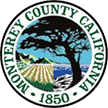Cal Interpreting & Translations (CIT) offers Cayuga interpreters and translators with legal, medical, and specialty experience, including criminal and civil matters, employee meetings, engineering, patent cases, labor disputes, immigration, and more.
CIT offers comprehensive Cayuga language services including interpretation, translation, and transcription, 24 hours a day, 7 days a week, worldwide. Our interpreters and translators are native speakers who have been screened, certified, provided credentials, field-tested, and kept up to date with developments in both English and Cayuga languages through means such as lectures, conferences, and travel. Cal Interpreting & Translations’ Cayuga language interpreters and translators possess in depth knowledge of the Cayuga language, as well as of the culture and history of the Cayuga people, allowing them to provide informed and complete interpretation and translation.
Cayuga is a Northern Iroquoian language. The Five Nations Iroquois collective languages are referred to as the Iroquois Proper, or, Five Nations Iroquois language. The Northern Iroquoian sub-family encompasses Cayuga. Cayuga is spoken on Six Nations of the Grand River First Nation, in Ontario, by about 240 people, and on the Cattaraugus Reservation, in New York, by less than ten people. There were once two completely distinct dialects of the Cayuga language. However, one, called “Seneca-Cayuga,” is now extinct. Seneca-Cayuga was spoken in Oklahoma until the 1980s. The last remaining dialect simply referred to as Cayuga, is spoken today only in Ontario and New York, on the aforementioned reservations, where it is referred to as Gayogo̱hó:nǫ’.
After the extinction of Seneca-Cayuga, there remains only one dialect of Cayuga. However, there are two distinct varieties of Cayuga. What is referred to as The Lower Cayuga dialect is spoken in the Lower End of the Six Nations, while the Upper Cayuga variety is spoken in the Upper End. The most notable difference between the two is the use of certain sounds, and some pronunciations.
The name Cayuga means literally, “People of the Great Swamp”. The Cayuga’s lands were plentiful, in the Finger Lakes region along Cayuga Lake, west of Seneca. Today, the Cayuga people belong to the Six Nations of the Grand River First Nation in Ontario, as well as the Cayuga Nation of New York, and the Seneca-Cayuga Tribe of Oklahoma.
During the American Revolution, many Cayuga warriors joined forces with the British, hoping to put an end to the colonists quickly encroaching on their lands. This joining of forces led to General George Washington heightening his focus on the Iroquois Nation. In 1779, over 6000 troops stormed Cayuga and other Iroquois villages, decimating over 50 villages, and nearly wiping out many of the Cayuga. The remaining fled to other Iroquois nations, and some were forced to swear loyalty to the Crown to spare their lives.
Then, on November 11, 1794, the Cayuga signed the Pickering Treaty with the United States, ceding most of their lands in New York to the United States. The Cayuga were forced into this “treaty” as allies of the British. The Pickering Treaty recognized the rights of the Iroquois as sovereign nations. Today, the Pickering Treaty remains a legal document in operation. The U.S. government continues to send the required gift of muslin fabric to the Iroquois nations each year.


No matter what your needs may be, we can and are ready to assist you now. We have translators and interpreters standing by 24/7.

CIT's interpreter is such a rockstar, and it’s so great to have him as a lead interpreter for our Board meetings. About Our Interpreters 
Thank you for always being able to handle emergency interpreting assignments with ease. About Urgent Requests 
Thank you for always being able to handle emergency interpreting assignments with ease. About Urgent Requests 
Your translation rates are more competitive than other language service providers I used in the past. About Pricing 

Professionalism matters at CIT. We respond to request inside 24 hours.







